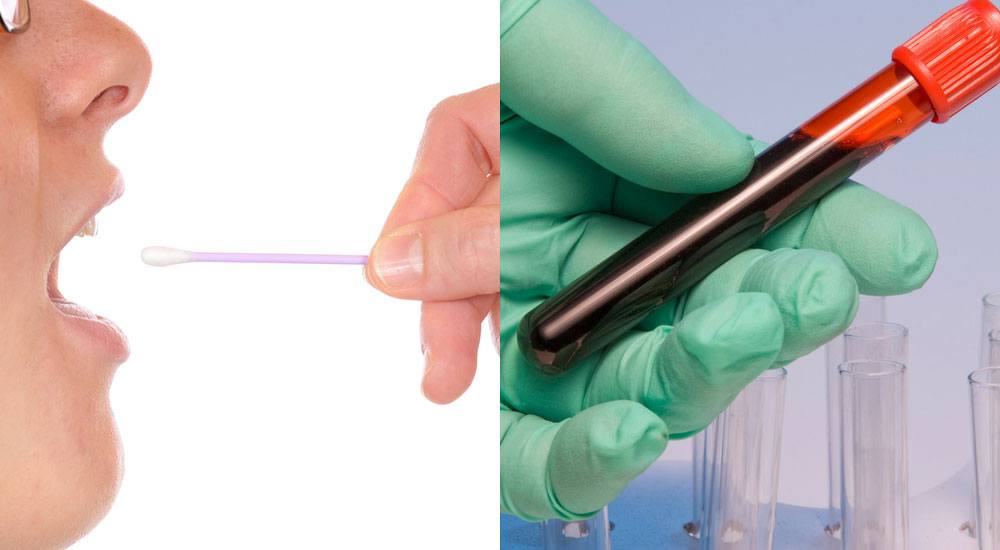The two most popular ways for labs to collect samples for DNA testing are blood samples and cheek swabs. The DNA testing results from extracting DNA-rich cells using either method are exactly the same, only there are differences in how the two samples are processed. Neither has been proven to be more accurate than the other, so it ultimately depends on personal preference or whether or not the lab provides a choice. The convenience and comfort of a buccal (cheek) swab make it the clear favourite for DNA testing for paternity. Let’s explore how these two methods work.
How Swabs Work for DNA Testing
Persons seeking DNA samples for paternity or immigration cases usually follow standard procedures in DNA testing centres around the country. DNA collected from a blood sample is exactly the same as DNA collected from cheeks, so when blood is analysed, the results are going to be just as accurate as the DNA extracted orally. There are actually several different methods for collecting DNA from your mouth area:
- Dry procedures require the insertion of swabs that scrape tissue from gums and cheeks. They can potentially also contain bacteria from teeth
- Wet procedures usually involve swishing a liquid around in the mouth and spitting the specimen into a collection pot. During this process, bacteria can also be released into the sample
- A non–invasive procedure involves spitting out the collecting solution and another is added to eliminate bacteria and help preserve the viability of the sample
For legal DNA testing, a collection specialist verifies the person’s identity, gets a signed consent form, swabs the inside of the patient’s cheek, and then safely packs the DNA specimen into a tamper-proof package.
Pros and Cons for Swab Samples
Swab collections have a number of advantages:
- No needle is used, no puncture of the skin is necessary
- It’s a quick, non-invasive procedure, with no pain involved
- The DNA collected is good indefinitely after collection if stored properly
- From a testing point of view, scientists prefer the easier extraction process
- Patients usually are more relaxed and less anxious about the DNA collection process
- The DNA is relatively affordable to collect
The main cons ascribed to swabs are:
- Bacteria can attack the cells containing DNA if not dried and stored
- Since the cells are not visible, there is no way to visually verify DNA is present
How Blood Samples Work for DNA Testing
The process of collecting blood works is not as simple or painless as swab-collection because a needle is inserted to collect the blood. Some patients are squeamish with needles, so there may be initial testing apprehension.
Pros and Cons for Blood Samples
Taking blood samples for DNA testing do have a few pros of their own, including:
- Clean blood in proper tubes minimises chances of contamination
- Fast and quick procedure
- Blood samples are visible
However, in some rare instances, if a person has recently had a blood transfusion before a sampling is drawn, the results could show two separate DNA samples. Clearly, though, the chance of this happening is very rare.
Blood samples do have cons for patients seeking this type of DNA test:
- Needles puncture the skin—patients will feel some degree of pain
- Multiple attempts may be required to insert the needle into smaller, thinner blood veins
- Distress may be caused to children when a DNA blood sample is required
- Blood samples are fast to collect, although not as quick as swab samples
Which Collection Method Would You Use for DNA Testing?
Both collection methods have their advantages and disadvantages. The reality is that you get highly- reliable results from both. From a practical perspective, it does not matter which procedure you opt for. After learning a little more about both processes, you might now have a clear idea of which one makes the most sense for you.
If you need additional information about a DNA test or want to order, contact our experienced customer-service team on 020 3301 7346.


Do you do sibling to sibling dna
Hi, C. Yes, we sure do. Please contact us at 800-681-7162 (U.S) or 0845 408 2084 (if you are in the UK) to discuss your testing options with one of our experts.
I send this message that I’d like to know the price of ancestry DNA blood testing and what to do to order. also a changed name could be change the test result. please send me your address and phone number
thank you
kayla
Contact information is here on our website, Kayla. Thank you.
How do I go about getting a blood dna test for me and my father
Hello, Laura. Please contact us at 0800 009 2969 during business hours.